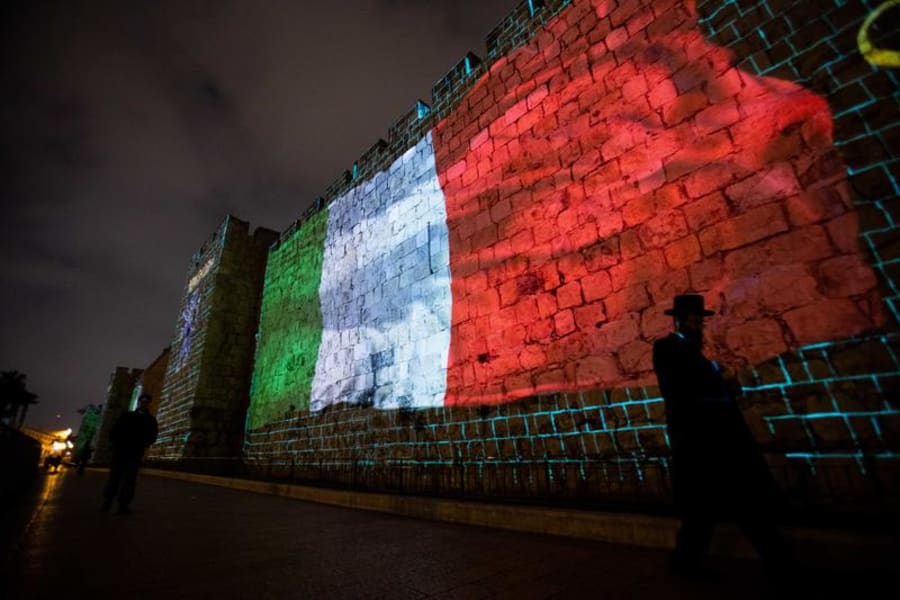Italy says recognizing ‘Palestine’ before it exists is counterproductive

Italian Prime Minister Giorgia Meloni announced on Saturday that Italy would not unilaterally recognize a Palestinian state before it is effectively established on the ground.
“I am very much in favor of the State of Palestine, but I am not in favor of recognizing it prior to establishing it,” Meloni said during an interview with the leading Italian news outlet, la Repubblica.
“If something that doesn’t exist is recognized on paper, the problem could appear to be solved when it isn’t,” the Italian premier added, arguing that such a diplomatic move could undermine the internationally supported vision of a two-state solution in the Middle East.
Italy, considered one of Israel’s strongest allies in the European Union, signaled that the country would not follow French President Emmanuel Macron’s plan to recognize a “Palestinian state” at the United Nations General Assembly (UNGA) this September.
"We must build the State of Palestine and ensure that, through its demilitarization and recognition by Israel, it contributes to the security of everyone in the Middle East," Macron recently announced.
The United States has voiced strong opposition to France’s plan to recognize “Palestine” in September. U.S. Secretary of State Marco Rubio stressed that Washington "strongly rejects (Macron's) plan to recognize a Palestinian state at the UN General Assembly."
Rubio also argued that such a move amounts to a de facto reward for the Hamas terrorist organization in Gaza. On Oct. 7, 2023, Hamas launched a surprise invasion into southern Israeli border communities, killing 1,200 people and kidnapping 251 (both living and deceased), including foreign nationals, into Gaza.
"This reckless decision only serves Hamas propaganda and sets back peace. It is a slap in the face to the victims of October 7th," he added.
The U.S. and Italian opposition to the unilateral recognition of a Palestinian state aligns with Denmark’s position. In May 2024, the Danish Parliament overwhelmingly rejected a proposal to grant such recognition.
"We cannot recognize an independent Palestinian state, for the sole reason that the preconditions are not really there," Danish Foreign Minister Lars Løkke affirmed at the time, “We cannot support this resolution, but we wish that there will come a day where we can.”
The French president has reportedly attempted to convince the United Kingdom to join him in formally recognizing a Palestinian state. While the British Prime Minister Keir Starmer has been critical of Israel’s self-defense military operations against the terrorist organization Hamas in Gaza, he nevertheless distanced himself from Macron’s plan.
"Alongside our closest allies, I am working on a pathway to peace in the region, focused on the practical solutions that will make a real difference to the lives of those that are suffering in this war,” Starmer recently stated. He emphasized that a diplomatic recognition of a Palestinian state should only happen within the wider context of regional peace and security.
Some 140 countries have already recognized “Palestine,” including multiple European nations. Last year, Spain, Ireland and Norway formally recognized Palestine despite opposition from the State of Israel.
If France does indeed recognize “Palestine” in September, it would become the first leading Western power to embrace this unilateral diplomatic path. Some Israeli ministers have warned that the Jewish state could respond to France’s unilateral recognition of “Palestine” by closing the French consulate in Jerusalem and annexing parts of Judea and Samaria (West Bank).

The All Israel News Staff is a team of journalists in Israel.
You might also like to read this:















